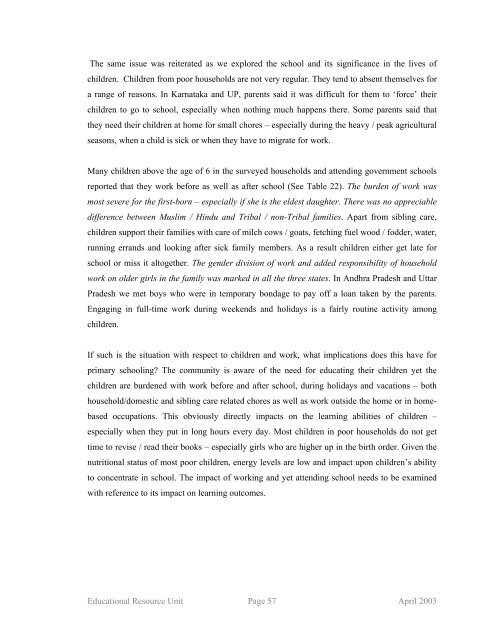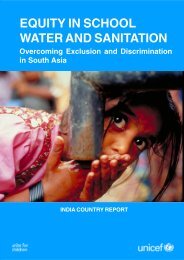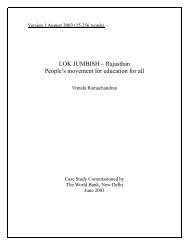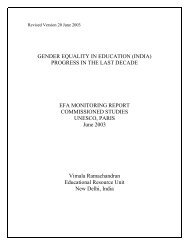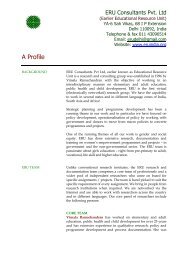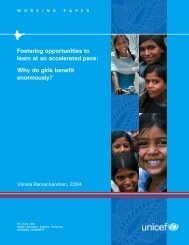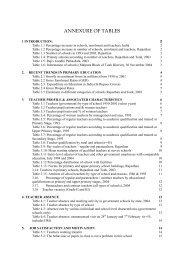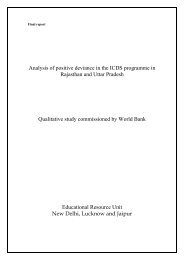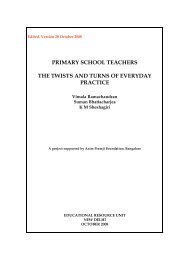Snakes and Ladders - ERU Consultants Pvt. Ltd.
Snakes and Ladders - ERU Consultants Pvt. Ltd.
Snakes and Ladders - ERU Consultants Pvt. Ltd.
You also want an ePaper? Increase the reach of your titles
YUMPU automatically turns print PDFs into web optimized ePapers that Google loves.
The same issue was reiterated as we explored the school <strong>and</strong> its significance in the lives of<br />
children. Children from poor households are not very regular. They tend to absent themselves for<br />
a range of reasons. In Karnataka <strong>and</strong> UP, parents said it was difficult for them to ‘force’ their<br />
children to go to school, especially when nothing much happens there. Some parents said that<br />
they need their children at home for small chores – especially during the heavy / peak agricultural<br />
seasons, when a child is sick or when they have to migrate for work.<br />
Many children above the age of 6 in the surveyed households <strong>and</strong> attending government schools<br />
reported that they work before as well as after school (See Table 22). The burden of work was<br />
most severe for the first-born – especially if she is the eldest daughter. There was no appreciable<br />
difference between Muslim / Hindu <strong>and</strong> Tribal / non-Tribal families. Apart from sibling care,<br />
children support their families with care of milch cows / goats, fetching fuel wood / fodder, water,<br />
running err<strong>and</strong>s <strong>and</strong> looking after sick family members. As a result children either get late for<br />
school or miss it altogether. The gender division of work <strong>and</strong> added responsibility of household<br />
work on older girls in the family was marked in all the three states. In Andhra Pradesh <strong>and</strong> Uttar<br />
Pradesh we met boys who were in temporary bondage to pay off a loan taken by the parents.<br />
Engaging in full-time work during weekends <strong>and</strong> holidays is a fairly routine activity among<br />
children.<br />
If such is the situation with respect to children <strong>and</strong> work, what implications does this have for<br />
primary schooling? The community is aware of the need for educating their children yet the<br />
children are burdened with work before <strong>and</strong> after school, during holidays <strong>and</strong> vacations – both<br />
household/domestic <strong>and</strong> sibling care related chores as well as work outside the home or in home-<br />
based occupations. This obviously directly impacts on the learning abilities of children –<br />
especially when they put in long hours every day. Most children in poor households do not get<br />
time to revise / read their books – especially girls who are higher up in the birth order. Given the<br />
nutritional status of most poor children, energy levels are low <strong>and</strong> impact upon children’s ability<br />
to concentrate in school. The impact of working <strong>and</strong> yet attending school needs to be examined<br />
with reference to its impact on learning outcomes.<br />
Educational Resource Unit Page 57 April 2003


